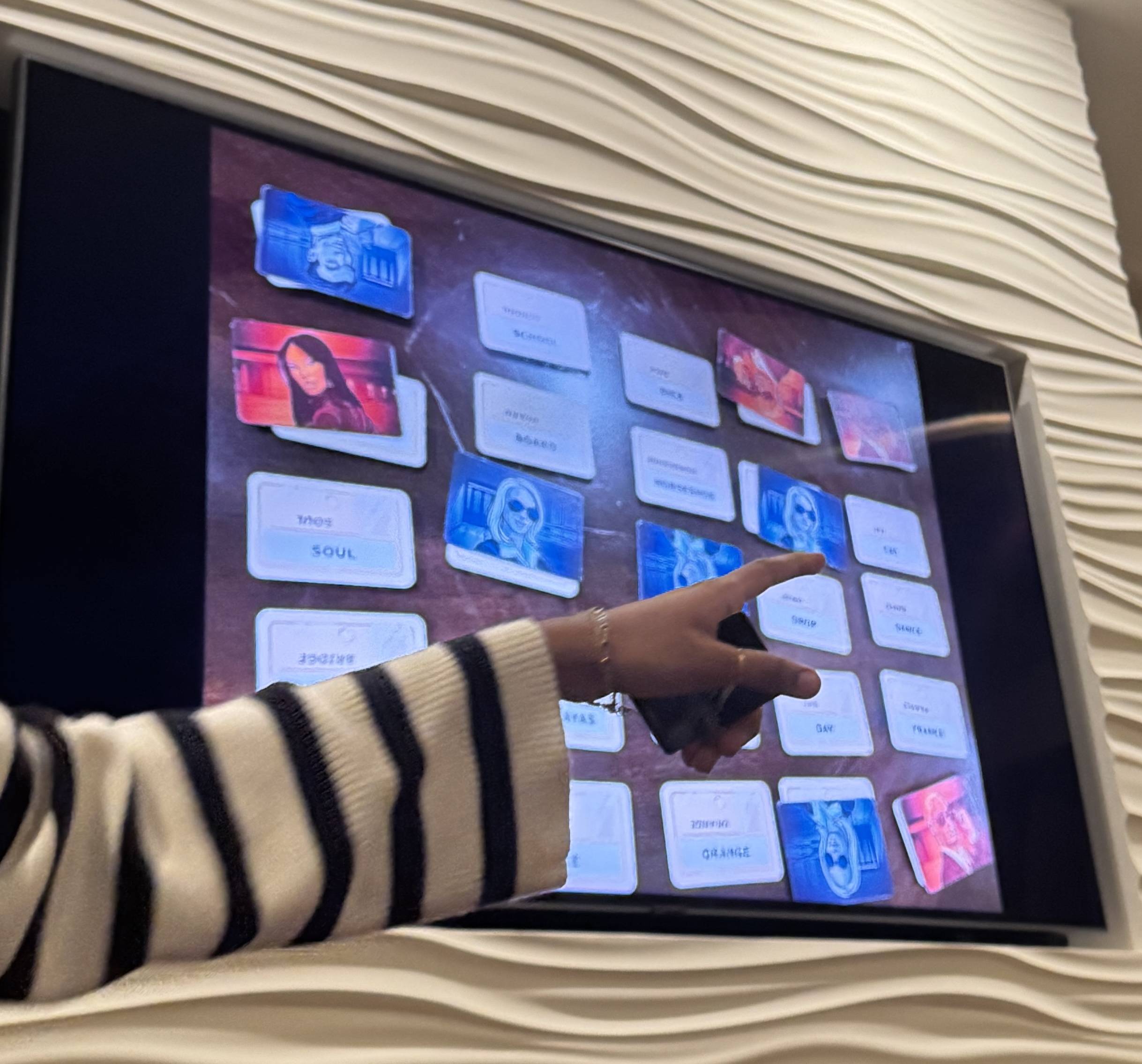I love Codenames. It’s a fairly simple game, but I could play it for hours, whether it be with different groups of friends, people I’m only just starting to get to know, or my family. What keeps pulling me in isn’t just the gameplay and the rules of the game — it’s the feeling it creates: the mix of tension, stress, triumph, the occasional drama, and the shared chaos when your team just barely guesses the right word (or hilariously guesses the wrong one).
Using the MDA framework, I realize that the magic of Codenames starts with simple mechanics: the giving clues, guessing words, and avoiding the assassin (the black card). However, from these simple mechanics, a fascinating dynamic emerges: the tense act of communication where you’re trying to say a lot with just one word. That is where the drama builds. Your team goes silent, your teammates squint at the board (or the tv screen, which my friends enjoy projecting the board onto), and as they second-guess over everything and try to pick at your psychology in why you, personally, would choose that word, and you sit there, silently screaming in your head at why in the world they would link the word “ocean” to “fantasy” (real story).
This dynamic overall creates one of my favorite aesthetics: fellowship. The game builds connection in real time. You’re reading each other’s minds, failing gloriously, and celebrating tiny victories. There’s also challenge, the mental workout of crafting the perfect clue, and even a touch of expression, because the clues you give say something about how you think.
Codenames is one of my favorite games that works because it is deceptively deep. It’s a word game that becomes a game about people — how they think, guess, stretch meanings, and work together. That, to me, is the most fun kind of fun.



